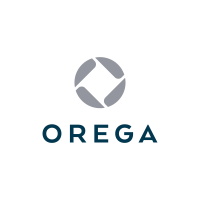- By Thames Valley Police | Photo Credit: James Cridland - Scales of Justice
- 10 October, 2017

Share by email
As both employers and providers of goods and services, businesses have a crucial role to play in combatting modern slavery in supply chains, say Thames Valley Police.
On October 2nd, Thames Valley Police launched its Hidden Harm campaign to raise awareness of abuse in the heart of our communities. Running over 18 months, the campaign will bring a number of different abuse-related crimes, which often go undetected or unreported, into the spotlight. The first focus is on modern slavery.
Estimates from the Home Office suggest that there are currently between 10,000 and 13,000 victims of modern slavery across the UK. This includes victims of sexual exploitation, forced labour, criminal exploitation and domestic servitude. In the Thames Valley alone, 120 modern slavery crimes have been recorded over the last two years (between 31/05/15 and 31/05/17).
During the campaign we will be appealing for people to open their eyes to abuse. However, it’s not just members of the public that need to be aware of this crime.
The role of business in identifying modern slavery
As both employers and providers of goods and services, businesses have a crucial role to play in combatting modern slavery by preventing and detecting potential exploitation by working together with business partners and suppliers.
Under Section 54 of the Modern Slavery Act (2015), commercial organisations with an annual turnover of over £36 million are required to publish an annual Slavery and Human Trafficking statement for each financial year. This outlines the steps that have been taken to ensure that slavery and trafficking is not taking place in supply chains, or in any part of a company’s own business.
Whilst the obligation to produce a statement only applies to larger organisations, they will also be required to perform due diligence on their own supply chain, which may then involve SMEs.
As a starting point, your business should consider the following:
- Ensure that senior level staff, as well as those involved in key areas such as procurement and HR, are aware of the Modern Slavery Act (2015) and the potential impact on businesses
- Review your policies and supplier contracts to ensure that modern slavery is addressed appropriately
- Conduct an audit of parts of your business or supply chain that might be at risk and ensure that protective measures are in place
- Ensure that employees have received appropriate training to raise awareness of the issues associated with modern slavery
More information can be found in the Home Office Guidance (2015), ‘Transparency in Supply Chains’ and a CORE Report ‘Beyond Compliance: Effective Reporting Under the Modern Slavery Act (2016)'.
Toolkits for businesses can also be accessed via the Stronger Together website and Oxford Brookes’ University’s website.
If you have concerns that someone may be a victim of modern slavery, please contact the police on 101. If you believe that someone is in immediate danger, always call 999.
If you don't want to speak directly to the police you can contact the independent charity Crimestoppers, anonymously, on 0800 555 111, or contact the national Modern Slavery Helpline on 0800 012 1700.
Anti-Slavery Day - 18th October
On Anti-Slavery Day (18th October), we will be hosting a joint online business discussion with our partners from Hope for Justice and Oxford Brookes University. The session will run from 2pm to 3pm and will be an opportunity for you to ask any questions you might have about business responsibilities relating to modern slavery and the practical measures that your business can take. The online discussion is open to everyone and can be accessed via our Cover it Live page.
Photo Attribution: "The scales of justice" by James Cridland is licensed under CC BY 2.0







